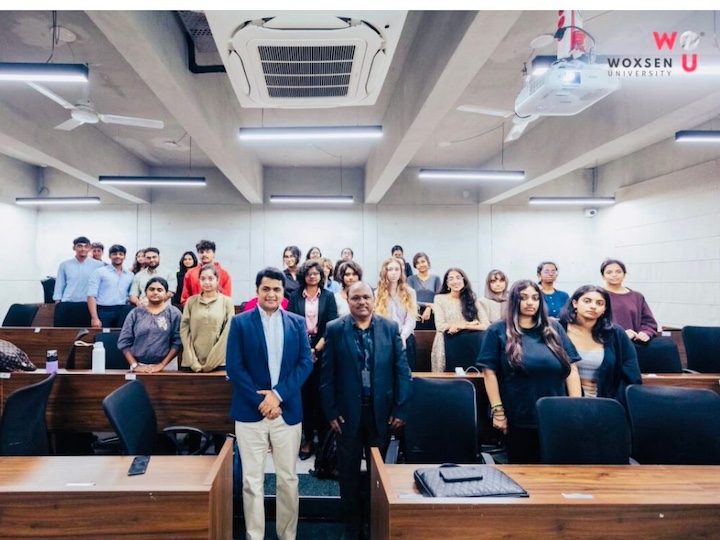
Jack J. Valenti School of Communication Spotlight: Assistant Professor Bhat
In the ongoing faculty spotlight series at the Jack J. Valenti School of Communication, this week's focus is on Journalism and Media Studies assistant professor Nandikoor Prashanth Bhat and his research regarding media and hate speech in South Asian countries.
Assistant Professor Bhat’s research and contributions to UH are quite impressive, as is he.
Born in Udupi, India – raised in Hyderabad, India, “an IT capital”, said Bhat, and someone who speaks six languages and holds a master’s and Ph.D. – his accomplishments are no small feat.
He’s held positions as a full-time journalist at an India TV news station, and was a freelancer for Times of India, and whilst in the states he interned with National Geographic Channel, Voice of America and China Central Television.
At UH, Bhat teaches three classes: News and Social Media, Media Power in Society and Mass Communication and Theory which serves as a graduate level course.
Despite the heavy class load, he has still found time to pursue his research interests as he studies media and hate speech in South Asian countries, such as India, where Bhat was born.
“I study online hate speech, safety and wellbeing of journalists, right wing, not right wing, … (and) populist communication or rhetoric directed against the media,” Bhat said.
While pursuing his research, Bhat made a recent visit to India to interview journalists, and he also spoke at two private universities in India.
“This particular research looks at the safety of journalists in rural parts of India,” said Bhat.
The sheer number of people in the country, vast languages spoken and more than 400 media networks in India, there is much to be discovered in terms of research covering Indian media, said Bhat.
“So overall, in the rural areas, we are seeing a decline of or a complete lack of any ethics in journalism for a variety of reasons,” Bhat said.
In delving deeper into his research of rural journalists, Bhat explained the safety and financial components affecting journalists’ ability or interest to uncover truths in their reporting.
“They don’t have access to journalistic associations or unions,” Bhat said. “They’re not aware of all the support mechanisms that journalists receive from journalistic associations or human rights organizations or civil liberties organizations, number one.”
According to Bhat, while many reporters face risks in both urban and rural areas, rural reporters find themselves more exposed to backlash following their investigative reporting.
Additionally, with advertising dollars being an important component to any newspaper, and with commission correlating to ad sales brought in by journalists directly, there is less incentive to pursue the truth, said Bhat.
In addition to his research in India, Bhat was invited to give two guest lectures at Manipal University’s, Manipal Institute of Communication, where he gave insight on collaborative journalism practices across South Asia and India.
“Collaborative journalism is a form of reporting where journalists from different newsrooms located in different countries come together to investigate a topic that is common or central to all of them,” Bhat said.
He also gave a lecture at Woxsen University in Hyderabad, South India where he gave insight on study abroad opportunities, covering digital authoritarianism in India and its implications for public discourse in the country.
He, himself is not a stranger to pursuing higher education in the states, as he received his master’s from American University in Washington, D.C., and his Ph.D. from the University of Maryland-College Park.
He provided insight into what school in the states is like and his experience in studying abroad. Bhat also encouraged students to consider pursuing a master’s and provided additional insight into opportunities at Valenti.
“[The] US remains one of the top choices for international students across the world. So, obviously they are interested in opportunities here at the University of Houston, and we are a very welcoming university of international students,” Bhat said.
Bhat looks to publish his work in a peer-reviewed research journal and continue his research by expanding further into journalism practices in India.
Following his travels and research he hopes for the University of Houston to have a study abroad program in South Asia and he hopes his time in India and research will inspire others back in India to potentially become professors.